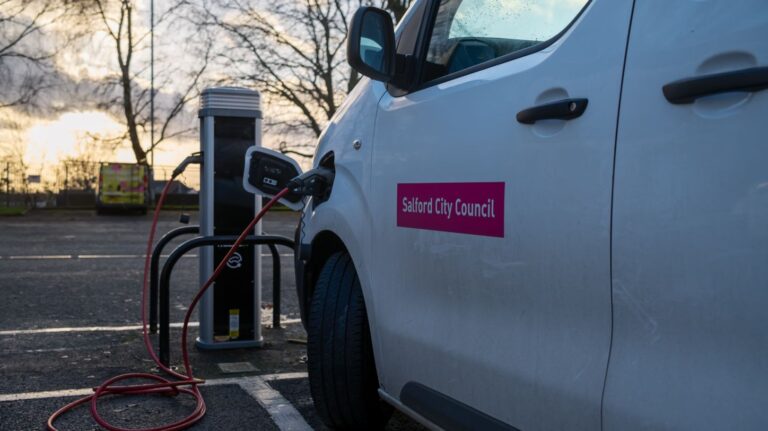High upfront costs and limited charging infrastructure are emerging as critical barriers in the transition to electric vans in the UK, according to a new report commissioned by the UK Department for Energy Security and Net Zero.
Despite government efforts to phase out internal combustion engine vehicles by 2030, the report, titled ‘EV adoption and smart charging for electric vans and commercial fleets‘, found that the commercial van sector lags behind in electrification compared to passenger vehicles.
According to the report, which was conducted by TRL, most fleet operators charge electric vans overnight, primarily at depots or residential sites, as daytime charging is often impractical due to time constraints and inconsistent public charging availability.
It states that electric vans are predominantly used for shorter, consistent routes, reflecting concerns about range limitations and inefficiencies associated with mid-shift charging.
Operators reportedly expressed doubts about the advertised range of electric vans under real-world payload conditions, while high costs for installing depot charging infrastructure – often exacerbated by the need for power supply upgrades – are said to discourage smaller fleets from adopting electric vans.
According to the report, drivers echoed concerns about range anxiety, and many reported hesitancy toward home charging setups due to reimbursement complexities and logistical barriers.
The public charging network was widely criticised for limited availability, long queues and functionality issues, further complicating adoption efforts.
Additionally, smart charging technologies remain underutilised due to a lack of awareness and perceived complexity, particularly among smaller fleets.
The report recommended expanding grants for infrastructure upgrades, creating incentives for shared private charging facilities and establishing dedicated commercial vehicle charging bays to address the challenges.
It also highlighted the need to raise awareness about smart charging technologies and streamline their implementation through collaboration with trade associations and energy providers.
Completed before the July 2024 UK general election, the report reflects the policies of the previous administration.
With the current government’s updated target of 2030 for phasing out internal combustion engines, the findings of the report aim to inform future strategies for decarbonising commercial transport.
Subscribe for free to the quarterly print edition of CiTTi Magazine for exclusive insights into the key business issues shaping the future of sustainable urban mobility. Stay ahead of the curve by signing up for the free CiTTi weekly newsletter, delivering sector-leading content straight to your inbox every Friday. For even more updates, follow CiTTi Magazine on X (formerly Twitter) and LinkedIn. LinkedIn followers can also subscribe to Urban Digest — a weekly newsletter curated exclusively for the CiTTi Magazine LinkedIn community.





